German Empire
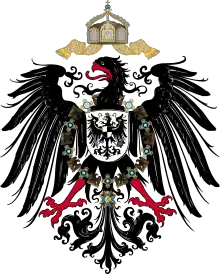
.svg.png.webp)
The German Empire (German: Deutsches Kaiserreich, officially Deutsches Reich), was the German nation state that existed from the Unification of Germany in 1871 until the abdication of Kaiser Wilhelm II in 1918.
The German Empire consisted of 26 states, most of them ruled by noble families. They included four kingdoms, six grand duchies, five duchies (six before 1876), seven principalities, three free Hanseatic cities, and one imperial territory. Although Prussia was one of several kingdoms in the realm, it contained about two thirds of Germany's population and territory.
After 1850, the states of Germany had rapidly become industrialized, with particular strengths in coal, iron (and later steel), chemicals, and railways. In 1871, Germany had a population of 41 million people; by 1913, this had increased to 68 million. A heavily rural collection of states in 1815, the now united Germany became predominantly urban. During its 47 years of existence, the German Empire was an industrial, technological, and scientific giant, gaining more Nobel Prizes in science than any other country.
Selected article
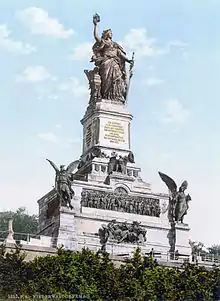
Die Wacht am Rhein (The Watch/Guard on the Rhine) is a German patriotic anthem. The song's origins are rooted in the historical French–German enmity, and it was particularly popular in Germany during the Franco-Prussian War and the First World War.
During the Vormärz era and the Revolutions of 1848, a Rhine romanticism movement arose, stressing the cultural and historical significance of the Rhine Gorge and the German territories on the river's left bank around the cities of Cologne, Worms, Trier and Speyer.
In response to the Ems Dispatch incident, which occurred in Bad Ems, not far from the Rhine, France initiated the Franco-Prussian War of 1870/71. When in the aftermath of the subsequent French defeat, the Prussian prime minister Otto von Bismarck achieved the Unification of Germany and the German Empire including Alsace–Lorraine was established, "Die Wacht am Rhein"—beside "Heil dir im Siegerkranz"—was the unofficial second national anthem. The song became famous, and both the composer and the family of the author were honoured and granted an annual pension by Bismarck.
The song's lyrics also appear on the 1883 Niederwald monument located just outside Rüdesheim am Rhein high above the river, epitomising the "guard on the Rhine" itself.
Selected biography
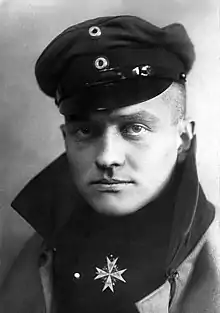
Manfred von Richthofen (2 May 1892 – 21 April 1918), also widely known as the Red Baron, was a German fighter pilot with the Imperial German Army Air Service (Luftstreitkräfte) during the First World War. He is considered the ace-of-aces of the war, being officially credited with 80 air combat victories.
Originally a cavalryman, Richthofen transferred to the Air Service in 1915, becoming one of the first members of Jasta 2 in 1916. He quickly distinguished himself as a fighter pilot, and during 1917 became leader of Jasta 11 and then the larger unit Jagdgeschwader 1 (better known as the "Flying Circus"). By 1918, he was regarded as a national hero in Germany, and respected and admired even by his enemies.
Selected images
Did you know?

- ...that the Reichstag building was constructed to house the Imperial Diet of the German Empire? It was opened in 1894 and housed the Diet until 1933, when it was severely damaged after it was set on fire.
- ...that the German term Sozialstaat has been used since 1870 to describe state support programs devised by German Sozialpolitiker ("social politicians") and implemented as part of Bismarck's conservative reforms?
Subcategories
Clicking the ► sign will expand or collapse the respective category.
Topics
States of the German Empire
_Hamburg.svg.png.webp)
Kingdoms
Grand Duchies
- Grand Duchy of Baden
- Grand Duchy of Hesse
- Grand Duchy of Mecklenburg-Schwerin
- Grand Duchy of Saxe-Weimar-Eisenach
- Grand Duchy of Mecklenburg-Strelitz
- Grand Duchy of Oldenburg
Duchies
- Duchy of Brunswick
- Duchy of Saxe-Altenburg
- Duchy of Saxe-Meiningen
- Duchy of Saxe-Coburg and Gotha
- Duchy of Anhalt
- Duchy of Saxe-Lauenburg
Principalities
- Principality of Schwarzburg-Sondershausen
- Principality of Schwarzburg-Rudolstadt
- Principality of Waldeck-Pyrmont
- Principality of Reuss-Greiz
- Principality of Reuss-Gera
- Principality of Schaumburg-Lippe
- Principality of Lippe
Free and Hanseatic Cities
- Free and Hanseatic City of Lübeck
- Free and Hanseatic City of Bremen
- Free and Hanseatic City of Hamburg
Imperial Territories
Colonies of the German Empire
The German colonial empire (German: Deutsches Kolonialreich) constituted the overseas colonies, dependencies and territories of Imperial Germany. Short-lived attempts of colonization by individual German states had occurred in preceding centuries, but crucial colonial efforts only began in 1884 with the Scramble for Africa. Germany lost control when World War I began in 1914 and its colonies were seized by its enemies in the first weeks of the war. However some military units held out for a while longer: German South-West Africa surrendered in 1915, Kamerun in 1916 and German East Africa only in 1918 by end of the war. Germany's colonial empire was officially confiscated with the Treaty of Versailles after Germany's defeat in the war and the various units became League of Nations mandates under the supervision (but not ownership) of one of the victorious powers.
 |
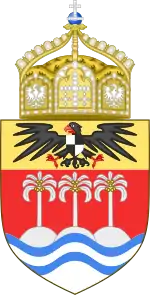 |
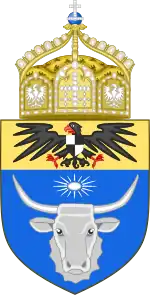 |
 |
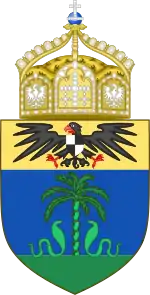 |
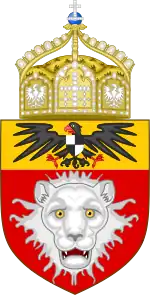 | |
| German New Guinea | German Samoa | German South-West Africa | Kamerun | Togoland | German East Africa |
Associated Wikimedia
The following Wikimedia Foundation sister projects provide more on this subject:
-
 Commons
Commons
Free media repository -
 Wikibooks
Wikibooks
Free textbooks and manuals -
 Wikidata
Wikidata
Free knowledge base -
 Wikinews
Wikinews
Free-content news -
 Wikiquote
Wikiquote
Collection of quotations -
 Wikisource
Wikisource
Free-content library -
 Wikiversity
Wikiversity
Free learning tools -
 Wiktionary
Wiktionary
Dictionary and thesaurus
-
 List of all portalsList of all portals
List of all portalsList of all portals -
 The arts portal
The arts portal -
 Biography portal
Biography portal -
 Current events portal
Current events portal -
 Geography portal
Geography portal -
 History portal
History portal -
 Mathematics portal
Mathematics portal -
 Science portal
Science portal -
 Society portal
Society portal -
 Technology portal
Technology portal -
 Random portalRandom portal
Random portalRandom portal -
 WikiProject PortalsWikiProject Portals
WikiProject PortalsWikiProject Portals
.jpg.webp)
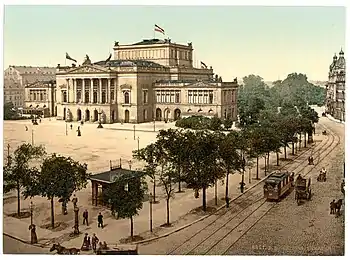
.jpg.webp)

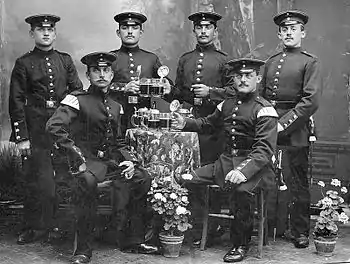
.jpg.webp)
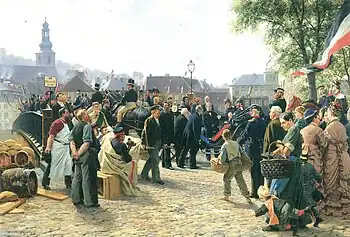
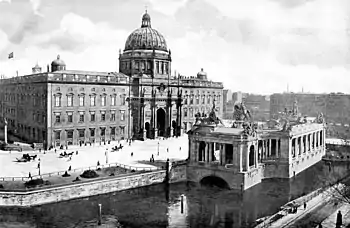
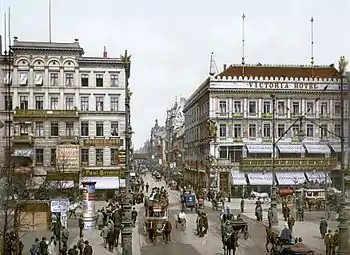
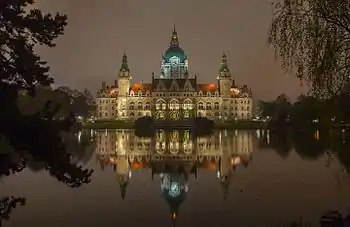
-en.png.webp)